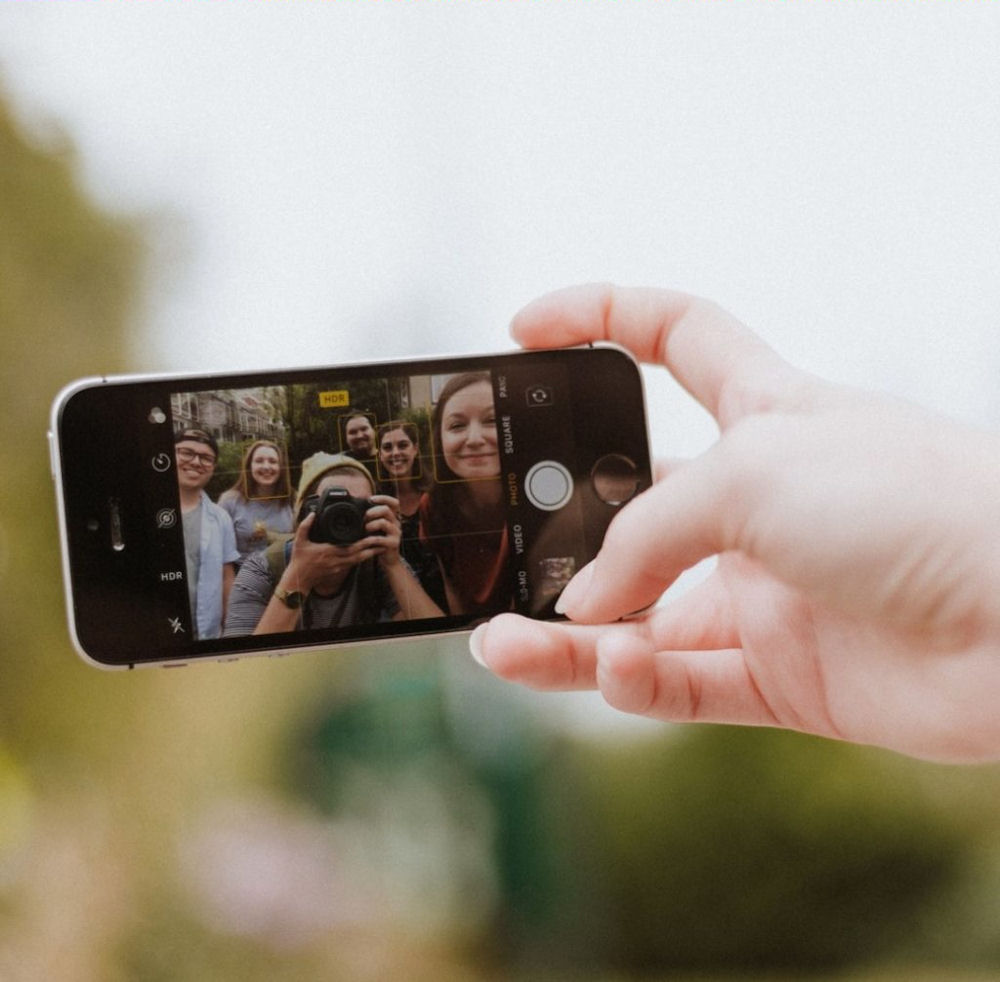Social Media Addiction Treatment
Social media addiction is a behavioral disorder in which teens or young adults become enthralled by social media and are unable to reduce or cease their consumption despite clear negative consequences and severe drawbacks. Social media addiction treatment has become a promising way to alleviate such instances, though it’s essential to understand how it works, what it targets, and who can benefit.
How Are Teens Addicted to Social Media?
While many teenagers engage in some form of social media platforms daily (including Facebook, Instagram, YouTube, Snapchat, and video games), teen social media addiction is characterized by the combination of excessive media consumption, an increasing reliance on social media platforms as a way to feel good, and an inability to stop or curb this behavior despite suffering losses in friendship, decreased physical, social engagement, and a negative impact at school.
What Does Social Media Addiction Look Like?
It’s known that teens and adults alike check their mobile devices and social media apps routinely, and it’s been well-documented that our excessive access to social media and our obsession with our online appearance has had a significant impact on teens, including severe self-esteem issues and feelings of anxiety. Social media can not only propagate mental health issues (and even physical health issues) for many teens, but it also becomes an easy outlet for online aggression and cyberbullying, further impacting a child emotionally.
An addiction to social media may lead young adults to struggle to engage with others on a normal level, as well as affect their academic performance and chances for a future. Addiction levels of social media use can also negatively impact existing relationships, leading many teens to struggle to maintain a commitment to their partner or friends due to constant distractions and lack of attention.

What Are the Causes of Social Media Addiction in Teens?
Yes, social media sites–and online media in general–are addictive in a certain sense of the word. The companies that run today’s most successful social networking apps and websites work hard on improving and growing the number of people they can bring onto their platform, while maximizing the amount of time a person spends on their social media platform.
The more time a person spends on social networking sites, the more ads they can run, and the more they’re likely to make a profit from their product. In the end, it’s a matter of business, and any great social media platform is built for brutal efficiency when it comes to getting people to stay. Young people making social media posts and browsing any social media site are more susceptible to social media addiction.
Social media can be a great tool for good, allowing people to stay in touch despite thousands of miles of distance, communicating at near-instant speeds. It can also be a great tool to engage with communities, receive customer feedback, organize groups and meetups, and more.
However, due to the way social media incentivizes an almost voyeuristic look into everyone’s life while incentivizing maximum curation and reputation editing, social networking sites often makes a person’s life look much more exciting and alluring than yours–as well as making it look much more exciting and alluring than it really is. This combination can impact an individual’s self-esteem, especially creating low self-esteem for young people.
This can severely take advantage of people’s sense of social competitiveness and belonging, often making them feel outclassed or less attractive.
For people who struggle to maintain real-life relationships or communicate in person, social media provides the perfect environment to communicate and self-express.
While this is a positive thing, it isn’t generally healthy to avoid addressing major issues of social anxiety, especially due to all the negative emotional and physical effects of excessive screen time and online social networking consumption.
How Can I Help My Teen Addicted to Social Media?
Help your teen with effective coping mechanisms – When teens use social media as a way to cope with sadness, it can quickly and negatively affect their mental state and leave them feeling even more empty, envious, or frustrated. Effective coping mechanisms should help a teen overcome or adapt to their troubles rather than providing escapism.
Hobbies that help your child improve mentally or physically, mindful practices such as meditation and spiritual activities, long walks alone, or time spent with a therapist are all tremendous ways to help a person cope effectively with issues. They provide outlets for stress and help teens addicted to social media find a healthy perspective to tackle their problems.
Limit screen time—Don’t be afraid or hesitant to manage screen time outright. Social media is so much more beneficial when used as a tool or as a principled source of entertainment or information. But when teens addicted to social media preoccupy themselves with screen consumption almost every hour of the day, they become unable to think about or focus on anything else.
Managing a teen’s screen time and encouraging them to do so on their own may be challenging at first, but the rewards of looking away and living in the present can benefit their happiness and well-being. Social media addiction therapy can help your teen find ways to feel more connected to the current moment without needing to unlock their phones or computers.
Encourage continued treatment after recovery – Social media addiction treatment options for social media addiction may help a teen in the short-term. Still, it’s essential to follow up and encourage them to continue seeking help for their problems or encourage them to seek help the next time they feel that they’re slipping or struggling with some emotional issues.


How Does Social Media Addiction Rehab Help Teens Be Their Best Selves?
Social media addiction treatment requires time spent away from online media, even if it’s commonly met with hesitancy by a teen. Social media addiction therapy focuses on helping teens deal with the repercussions of their addiction and be held accountable. This therapy guides them in understanding the potential causes for their addictive behavior and identifying methods that might help them better limit their social media use. Since there are positives to social media when used appropriately, social media addiction rehab aims to help teens continue a healthier relationship with online media without putting down a phone forever.
One-on-one psychotherapy with mental health experts may help teens dissociate from their behavior and realize the damage it has been doing to them and others.
There’s an argument to be made that teens live with different concepts of communication and interaction thanks to the internet, but research has shown that excessive social media use leads to severe negative mental health impacts.
By understanding the damage that has been done–and why it was done in the first place–teens can move on to find ways to balance their social media with life.
Sometimes, it helps to work not only with a teen, but with their family as well. A group therapy session can help the rest of the family better understand what the teen is going through, as well as identify methods to help them.
Implementing changes throughout the whole family can also help the teen better deal with their problem and encourage healthier use of social media throughout the household.
While talk therapy is a powerful tool, psychiatrists and therapists use a large repertoire to help teens deal with their social media addiction, including different forms of therapy to help introduce a teen to certain coping mechanisms, and alternative treatments such as meditation, yoga, and more.
If a teen is diagnosed with a different problem, or if a teen shows symptoms of social anxiety disorder and/or depression, a psychiatrist may also employ treatment methods for these disorders, potentially including medication if needed.
Here at Paradigm Treatment, the first and most primary function of teen social media addiction treatment is to reduce the amount of time that teens spend on social media. By restricting the amount of time teens spend interacting on social media, we help them prioritize real social interaction with their peers.
Not only is this better for mental health, but this way, they’re more likely to develop a better sense of self. On top of this, we believe that it is important for teens who struggle with social media addiction to spend more time out in the fresh air.
Our locations are all built near beautiful nature spots, from beaches to parks and hiking routes.
Getting Used to An Offline World
At Paradigm, therapists simultaneously begin working with teens to evaluate and address the underlying reasons, triggers, and beliefs connected to their overuse of social media.
As teens begin to make the connection between their overuse of social media and things like strained real life relationships, trouble at school, and a constant feeling of being distracted and anxious, our therapists can help teens cope with the potential causes of their addiction.
Social Media Misuse and Other Problems
Teen social media addiction treatment may help uncover potential other disorders or difficulties, including mood disorders, anxiety issues, or substance abuse struggles. Gradually, therapists want to help teens gain an awareness over the effects of excessive social media use on their lives.
In a sense, social media addiction can often be seen as a symptom of a greater problem. While the feedback loop from using social media can be addictive, it isn’t quite the same thing as a physical addiction. Oftentimes, the incentive to truly begin using social media as a coping mechanism is something more insidious and problematic.
If you are looking for internet addiction treatment centers in California, we can help. Contact Paradigm today for more information.
Frequently Asked Questions About Social Media Addiction Among Students
It’s important to remember that, while you’re fighting an uphill battle, you can have an influence on how your teen sees the effects of social media use. Rather than force your teen to do anything, you need to leave it up to them to make the right decisions–but help nudge them towards those decisions.
It all begins with structure. If your teen is young enough that you’re still in control of their privileges, work on limiting their screen time and monitoring their mobile device usage.
Don’t invade your child’s privacy, but remind them to balance their time spent on social media with chores, homework, and encourage them to spend time with their friends outside rather than cooped up. Teens today are digital natives and have grown up in a world that is intertwined with the Internet and its social networks.
Their idea of friendship and communication is far different from that of their parents–but there is a difference between social media use and social media abuse.
The term addiction can often be used a little too liberally, and it’s important to differentiate addicted behavior from typical social media usage. Not only are the overwhelming majority of teenagers on some form of social network online, but more than half spend nearly all of their time somehow connected to the internet. It’s not realistic to condemn them all as addicts.
However, any behavior that they cannot control, signs that their use of social media, other forms of social media and computers is compulsive and affects them deeply, as well as irritability and a sense of sadness after being separated from social media can imply an unhealthy connection to social media. Teens have a hard time balancing pleasure and life’s other aspects and need structure.
Other Mental Health Topics You May Find Useful
5 Tips to Start the New School Year Off Right
It can be tough to keep up with all of the different apps that today’s teenagers are using. Teens spend a lot of time on their phones and other mobile […]
Continue ReadingEncouraging Screen-Free Time For Teens This Summer
The term “digital natives” refers to individuals who are born into and grow up in a world where the Internet, and the various forms of technology we use to interface […]
Continue ReadingDoes Your Teen Have a Social Media Addiction?
More than nine out of ten teens go online daily, mostly with their smartphones. A quarter of teens say they are online “almost constantly.” When it comes to time spent […]
Continue ReadingTeen Social Media, Cell Phone, and Internet Addiction on the Rise
A new study by Common Sense Media reveals that teens feel addicted to social media and their mobile devices. The study found that 50 percent of teens between the ages […]
Continue ReadingTeens: Stick with a Healthy Dose of Social Media
It’s fun to hang out online. There are friends from school and even those you’ve never met and the connections are fun to have. In fact, you might have a […]
Continue ReadingToo Much Social Media Tied to Poor Teen Mental Health
This might not come to a surprise to parents and teachers, but too much online activity, particularly social media, can contribute to poor teen mental health. In fact, this is […]
Continue Reading
Lucy Nguyen is the Executive Director at Paradigm Treatment, overseeing all clinical treatment programs across the organization’s southwestern region. Her extensive experience includes working with young adults in private practice, serving as a therapist for children and teens with emotional and behavioral needs, and acting as a behavior interventionist for teens with developmental disorders. Lucy integrates cognitive-behavioral approaches with mindfulness and compassion in her work, and she is also EMDR-trained. She holds a Master of Science in Counseling from California State University, Fullerton, and a Bachelor’s degree in Psychology and Social Behavior from the University of California, Irvine.




